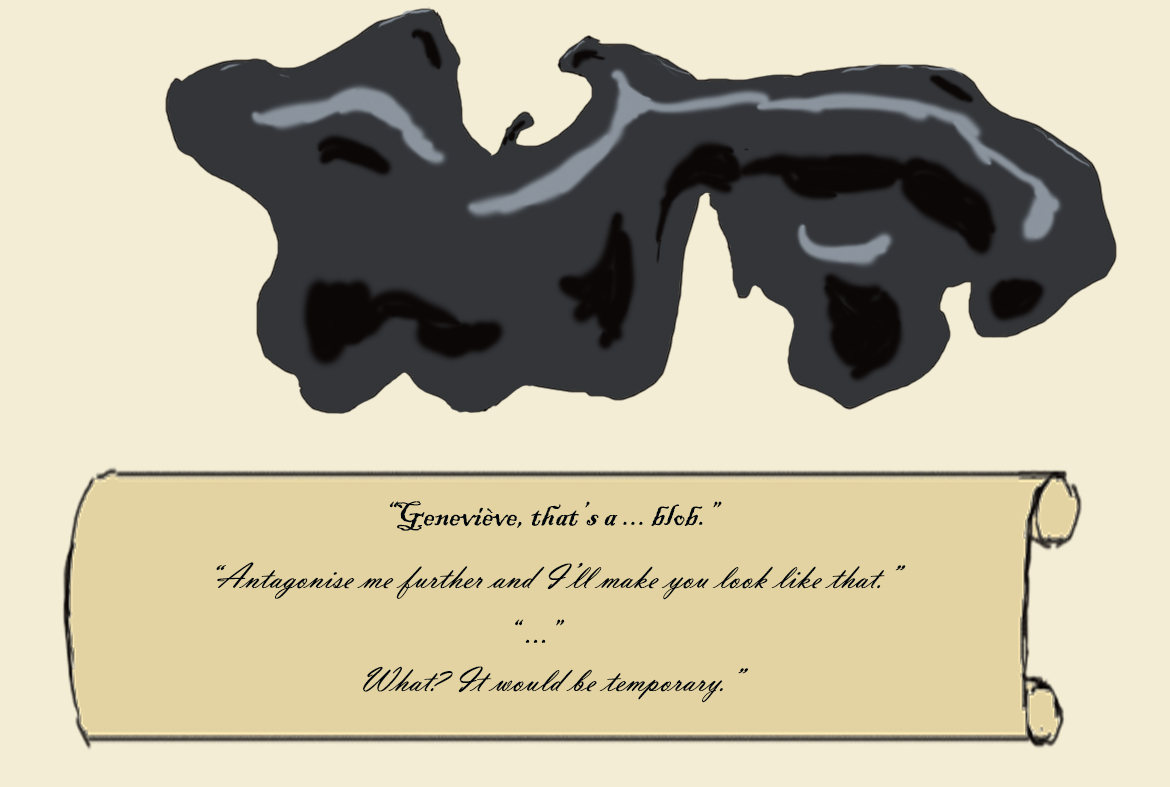The Abonian war
The Abonian war was part of a series of Communal/Declarant conflicts during the 16th and 17th centuries as various Declarant denominations gained in popularity.
Though it became a vicious struggle which deeply divided the populace and would result in a confused scattering of religious beliefs in the region, the conflict was born out of the much more sedate question of what was to be done with various Communal properties and titles when their holders converted to Declarism.
By the end of the 16th century, many people in the northern part of the Later Rhemian Empire had converted from the Communal Church to various forms of Declarism. [Dec denomination #1] especially gained a lot of followers including many members of the nobility and several prominent Communal clergymen. Since these prominent clergymen held titles, land and property granted to them by the Communal church but under the rule of the local nobility, this presented everyone with a conundrum. Should the converted clergymen get to keep their position and would their property be used for Declarant worship? Or should it be reclaimed by the Communal church? The titles also granted some of the clergy governmental rights - obviously the Communal church was not keen to give away this influence to their Declarant rivals. But many of the nobility argued that since so many of their subject peoples were now Declarants, it was nonsensical for the Communal church to continue to have such influence in their government. The Communal church retorted that they were talking about the government of the Later Rhemian Empire, whose emperor was tied to the Communal church. The emperor at the time of this remark, Theodrich's predecessor, was old and bedridden and therefore utterly unable to give his opinion. Immanuel, the [dec denomination #1] leader tried to keep peace, stating that of course they were loyal to the empire - they were just trying to provide for their citizens.
In the eastern part of the empire lay the kingdom of Abonia and many there felt that they too were rather tired of accepting the Communal emperor as their lord. Fortunately for them, they had a tradition of electing their king from a member of the prominent nobility of the empire. The current emperor was old and would be gone pretty soon, everyone knew that. And then we too can have a Declarant leader, they thought. Not so fast, said the Communal alliance. We think your kingship should be hereditary. And oh yes, we still hold the majority of votes in the empire's government. Abonia was not best pleased and Bastian saw an opportunity begin to form. More than a few messengers rode from the western to the eastern side of the empire.
It didn't take long for the old emperor to pass away and his place to be filled by his heir, Theodrich. Abonia promptly deposed him as king and elected Bastian in his place. Finally, a Declarant ruler, shouted much of the population (but not all of them). In those pockets where many were still Communal, Bastian did his best to stimulate the Declarants. But calling him king was not enough to throw off the Communal rule and despite (or perhaps because of) his new mighty position Bastian was unable to rally his union. The union had always been uneasy due to the differing religious opinions amongst the denominations - some regions refused to have anything to do with altogether as their denomination strongly opposed violence altogether. Immanuel was wary of Bastian's new found power and worried it would brand them all traitors and bring the new emperor crashing down on them. Other members of the union complained about logistical problems - what on earth had Bastian gone and accepted a kingship in the east for? Didn't they have enough frontiers on the west?
This was the kind of opportunity Erhard had been waiting for. In the west he continued to keep Immanuel wavering with a combination of threats of promises. Many of the [dec denomination #1] nobility looked to Immanuel for their course of action and thus remained uncommitted to supporting Bastian. Erhard set off for Abonia with his army. They did not have the smoothest of trips - the early spring weather was tumultuous and a recurring sickness kept breaking out. Despite this the army held together, filled with a sense of righteous purpose as they set off to defend their emperor's rights and, more importantly to most, stamp out that heretical Declarism.
Meanwhile Bastian had spent all winter attempting to gather and keep an army with insufficient funds and the soldiers had plundered the country they passed through as a result. Even the Declarant population, most of whom adhered to different denominations than that of Bastian, was decidedly less than enthused about this. The Communal part of the population was downright furious and some towns who still had a Communal majority did their best to chase Bastian's soldiers out of town. Not all succeeded and the results in those cases were often bloody. Bastian had received word of the movements of Erhard and his army and wanted to move his own troops into position on a hill nearby the Abonian capital. His fellow leaders, such as he had managed to gather though, were not all of one mind and much time was wasted as they could not agree upon a strategy. Eventually Bastian managed to convince them all and get their troops moving, but by that time their advantage was lost. Erhard and his fellows had not hesitated, sweeping them along with passionate words about the defence of Andor and the destruction of sites of Communal worship in heretical Abonia, and by the time Bastian and his army arrived at their desired location, Erhard was already in place.
The battle did not take long, according to all accounts. Bastian was forced to flee the field and ended up fleeing from the Later Rhemian Empire entirely. He was later formally exiled and stripped of his titles. Erhard formally returned the kingship of Abonia to the emperor Theodrich but got himself installed as Abonia's practical ruler. This was not hard as he had made a good many expenses for Theodrich's sake. When Bastian fled, his allies from the west also returned to their own lands where they generally had enough to deal with as it was. Deprived of support, the local Abonian nobility either also fled, were executed, or agreed to submit to the rule of Theodrich and Erhard. [Dec denomination #1] was allowed some leeway as Erhard currently had no desire to antagonise Immanuel, but the surviving members of other denominations were forced to convert back to the Communal Church.
An Overview of Events
By the end of the 16th century, many people in the northern part of the Later Rhemian Empire had converted from the Communal Church to various forms of Declarism. [Dec denomination #1] especially gained a lot of followers including many members of the nobility and several prominent Communal clergymen. Since these prominent clergymen held titles, land and property granted to them by the Communal church but under the rule of the local nobility, this presented everyone with a conundrum. Should the converted clergymen get to keep their position and would their property be used for Declarant worship? Or should it be reclaimed by the Communal church? The titles also granted some of the clergy governmental rights - obviously the Communal church was not keen to give away this influence to their Declarant rivals. But many of the nobility argued that since so many of their subject peoples were now Declarants, it was nonsensical for the Communal church to continue to have such influence in their government. The Communal church retorted that they were talking about the government of the Later Rhemian Empire, whose emperor was tied to the Communal church. The emperor at the time of this remark, Theodrich's predecessor, was old and bedridden and therefore utterly unable to give his opinion. Immanuel, the [dec denomination #1] leader tried to keep peace, stating that of course they were loyal to the empire - they were just trying to provide for their citizens.
As a result of this political bickering several of the Declarant regions gave thought to forming a sort of union that might give them. This could enable them to stand up to the Communal church with military force, allow them to keep the Communal properties and use them for their own Declarant subjects and gain ecclesiastical representation in the government that would be (they presumed) on their side. Bastian, who ruled a large section in the western region of the empire, was the foremost amongst these. To the south, where the general population still adhered to the Communal church, Erhard started forming a Communal alliance in response. Many of the clergymen there felt threatened by the formation of the Declarant union and rightly guessed that Bastian wished to seize their lands.
Conflict Type
Civil War
Start Date
1616?
Ending Date
1620
Participants
One of the most important participants in the Abonian war was Bastian, who was elected king of Abonia and a [dec denomination #2]. He had been trying to build up a union of Declarant regions for a while. Bastian's greatest opponent was Erhard, a young, energetic and highly component duke from a region further south. Erhard was a fervent Communal, which automatically placed his loyalties on the side of the emperor. But he also saw great political and material opportunities for himself if he managed to gain Abonia, and seems to have been more interested in gaining those areas and there enforcing Communal worship than displaying any particular loyalty to the empire. The other important Declarant leader in the empire was Immanuel. He was the de facto leader of [dec denomination #1]. Despite this he still considered himself loyal to the emperor and trying to keep the peace. The might Bastian was gathering also seemed to threaten his political position, perhaps due to the different denomination. The emperor who ostensibly ruled all these men was Theodrich. He had too little real influence to make much difference. He also did a decent attempt to keep the peace, but Bastian and Erhard were too wrapped up in their conflict and did much to stir up the general populace.






Comments